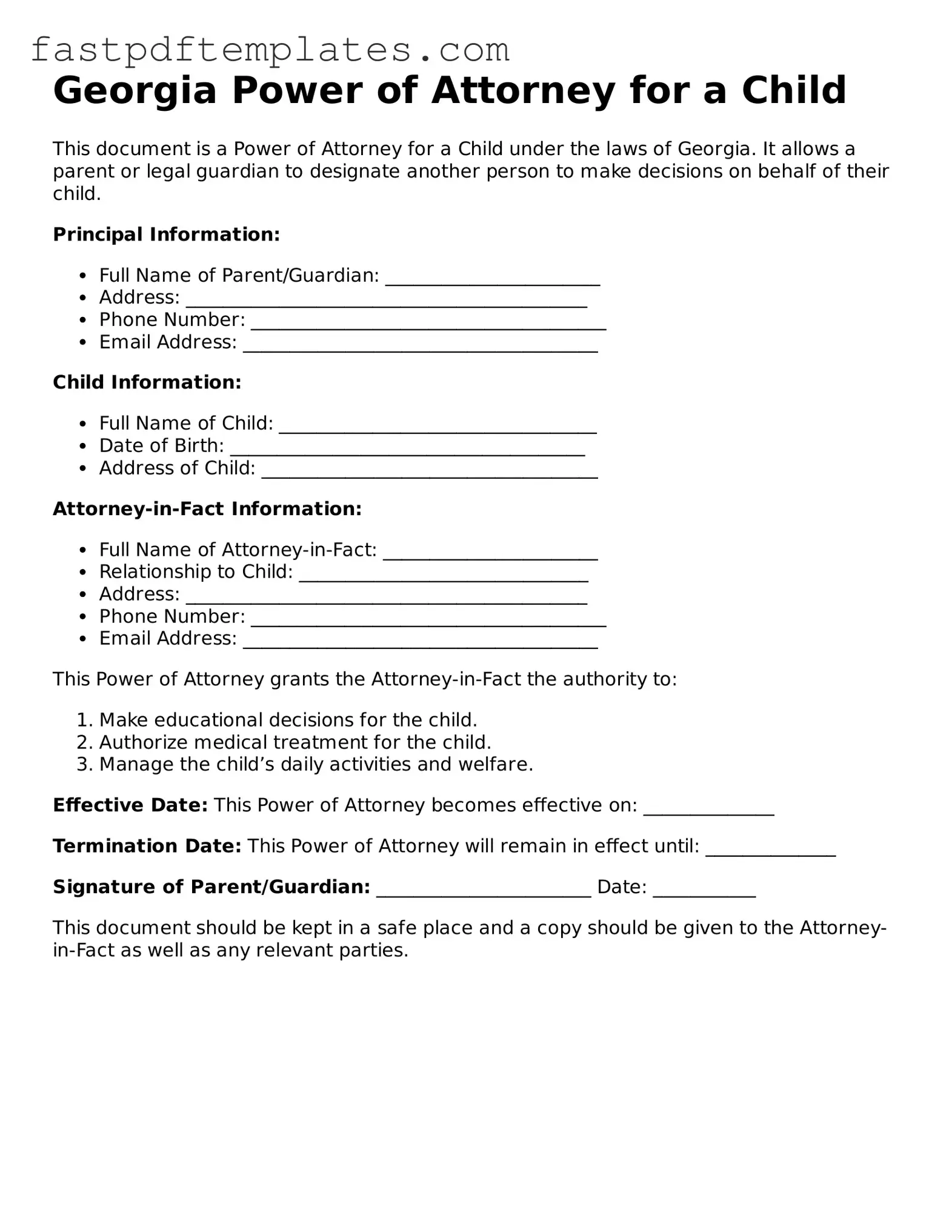The Georgia Power of Attorney for a Child form shares similarities with the General Power of Attorney. Both documents grant authority to an individual to act on behalf of another person. However, while the General Power of Attorney can apply to a wide range of financial and legal matters, the Power of Attorney for a Child specifically addresses the care and welfare of a minor. This targeted focus allows parents to designate someone to make decisions regarding their child's health, education, and general well-being when they are unable to do so themselves.
Another document that resembles the Georgia Power of Attorney for a Child is the Medical Power of Attorney. This form allows a person to appoint someone to make medical decisions on their behalf. Like the Power of Attorney for a Child, it is designed for situations where the individual cannot express their wishes due to illness or incapacity. The key difference lies in the focus; the Medical Power of Attorney is solely concerned with health-related decisions, while the Power of Attorney for a Child encompasses broader responsibilities, including education and daily care.
The Child Custody Agreement also shares characteristics with the Power of Attorney for a Child. Both documents are used to outline the responsibilities and rights concerning a minor. A Child Custody Agreement specifically addresses the living arrangements and visitation rights of parents or guardians, often following a divorce or separation. In contrast, the Power of Attorney for a Child allows a parent to temporarily delegate their authority to another person, which may not necessarily involve custody issues.
The Guardianship Agreement is another document that parallels the Power of Attorney for a Child. In a Guardianship Agreement, an individual is appointed to take care of a child, usually in situations where the biological parents are unable to do so. While both documents serve to ensure the child's welfare, the Guardianship Agreement typically involves a more permanent arrangement, whereas the Power of Attorney for a Child is often temporary and can be revoked at any time.
The Consent to Travel form is also akin to the Georgia Power of Attorney for a Child. This document is used when a child is traveling without their parents or legal guardians. It provides permission for the child to travel and often includes details about the trip and the adult accompanying the child. While both documents ensure the child's safety and well-being, the Consent to Travel form is specifically focused on travel situations, whereas the Power of Attorney for a Child covers a broader range of responsibilities.
The Temporary Guardianship Agreement is another document that is similar to the Power of Attorney for a Child. This agreement allows a parent to designate someone to take care of their child for a limited period. Like the Power of Attorney, it ensures that the child's needs are met during the absence of the parent. However, the Temporary Guardianship Agreement is often more formal and may require court approval, while the Power of Attorney for a Child can be executed without such requirements.
Finally, the Adoption Consent form can be compared to the Georgia Power of Attorney for a Child. This document is used when a biological parent consents to the adoption of their child by another individual or couple. Both documents involve the transfer of parental rights and responsibilities, but the Adoption Consent form signifies a permanent change in custody, whereas the Power of Attorney for a Child is a temporary delegation of authority that can be revoked at any time.

